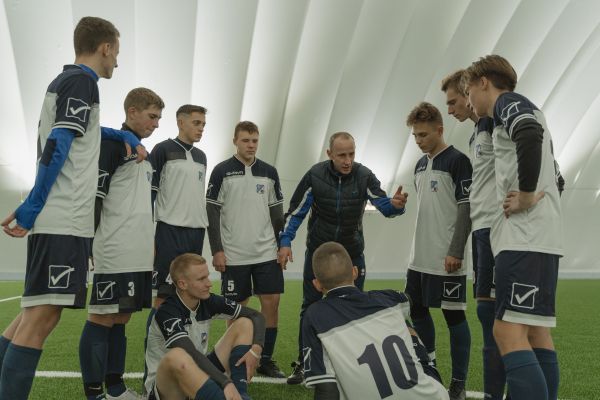In the ever-evolving landscape of competitive sports, an assistant coach serves as a linchpin, playing a crucial role in steering a team toward success.
This article delves deep into the multifaceted realm of the assistant coach job description, aiming to provide a comprehensive understanding of the responsibilities, qualifications, and essential qualities that not only define the role but also distinguish an outstanding candidate in the fiercely competitive field of sports coaching.
Assistant Coach Job description
Role and Responsibilities
1. Team Support and Collaboration
The assistant coach is the backbone of the coaching staff, working in tandem with the head coach to foster a culture of unity and shared purpose. Their role extends beyond the technical aspects of the game; they actively contribute to strategic planning, ensuring that the coaching staff operates as a cohesive unit.
2. Skill Development
A pivotal responsibility of an assistant coach is the nurturing of individual and team skills. This involves a keen eye for identifying areas of improvement, designing targeted drills, and providing constructive feedback to athletes. The assistant coach is instrumental in sculpting players into a formidable, well-rounded team.
3. Game Analysis
In the realm of competitive sports, victory often hinges on the ability to anticipate and counter the strategies of opponents. Assistant coaches are entrusted with the task of dissecting game footage, studying scouting reports, and collaborating with the coaching staff to formulate effective game plans. Their analytical prowess plays a decisive role in the team’s success.
4. Mentorship and Motivation
Beyond the tactical intricacies, assistant coaches assume a vital role as mentors and motivators. They forge strong bonds with players, cultivating a positive team culture where each athlete feels valued. In times of both triumph and adversity, assistant coaches provide the emotional support necessary for a team to thrive.
Qualifications
1. Educational Background
To embark on the journey of becoming an assistant coach, a bachelor’s degree in sports science, physical education, or a related field is typically the foundation. While not an absolute prerequisite, advanced degrees and coaching certifications can significantly enhance a candidate’s profile, offering a deeper understanding of coaching methodologies.
2. Coaching Experience
Experience is the crucible that shapes a coach’s acumen. Previous coaching experience, preferably at lower levels or as an assistant coach, is highly valued. It provides insights into the nuances of team dynamics, player development, and the intricacies of sports coaching.
3. Communication Skills
An assistant coach is a bridge between the coaching staff and players, necessitating effective communication skills. The ability to articulate strategies, provide constructive feedback, and foster open dialogue within the team is paramount.
4. Adaptability
Sports are inherently unpredictable, and an assistant coach must be adaptable. Whether facing unforeseen challenges, integrating new players into the team, or adjusting strategies on the fly, adaptability is a hallmark of a successful assistant coach.
Essential Qualities
1. Leadership
Assistant coaches are not merely technical instructors; they are leaders who inspire and guide. A strong sense of leadership is vital for instilling accountability, dedication, and a winning mentality within the team.
2. Analytical Thinking
The ability to dissect complex game situations, assess player performance objectively, and decipher opponents’ strategies is a defining characteristic of successful assistant coaches. Analytical thinking informs strategic decisions and contributes significantly to the team’s competitive edge.
3. Passion for Development
Beyond the realm of strategy and skills, a genuine passion for the holistic development of athletes sets exceptional assistant coaches apart. This passion manifests in the dedication to nurturing not just physical prowess but also the character and personal growth of each player.
FAQs
Q1: Can I become an assistant coach without prior coaching experience?
A1: While prior coaching experience is advantageous, some organizations may consider individuals with a strong background in playing the sport, coupled with relevant educational qualifications. However, gaining coaching experience at lower levels is highly advisable to understand the nuances of the coaching profession.
Q2: What coaching certifications are recommended for aspiring assistant coaches?
A2: Certifications from recognized coaching bodies, such as the National Federation of State High School Associations (NFHS) or the National Council for Accreditation of Coaching Education (NCACE), can significantly enhance a candidate’s credibility and provide a well-rounded understanding of coaching principles.
Q3: How important is adaptability in the role of an assistant coach?
A3: Adaptability is paramount. Sports environments are dynamic, and an assistant coach must be flexible in handling unforeseen challenges, adjusting strategies, and effectively collaborating with diverse personalities within the team.
Conclusion
In essence, becoming an assistant coach transcends mere professional pursuit; it’s a commitment to shaping the future of athletes.
The assistant coach job description requires a delicate balance of education, experience, and personal qualities.
Aspiring assistant coaches should embark on a journey of continuous learning, staying abreast of industry trends, and embodying the spirit of mentorship to not only survive but thrive in this competitive and immensely rewarding field.






